I sometimes think that God made us invent pickles only so that we would not have to eat bad food. Consider the average airline meal. It is usually fairly disgusting—at least on domestic sectors.
The best thing to do, I find, is to order the Indian meal option. It doesn’t matter whether you order vegetarian or non-vegetarian. You will get the same meal, for the most part. Non-vegetarians will get a few pieces of rubber chicken in a gravy of dubious origin. And vegetarians will get chunks of styrofoam paneer in an equally dodgy gravy.
Usually, I will not waste much time on the paneer/chicken part of the meal. The portion is tiny anyway. Instead, I will have the rice, the sabzi and the dal. None of them will be particularly tasty. But that is okay. Flight Kitchens are to cuisine what a pig is to Bharat Natyam. Chefs with some experience of inflight catering recognise this and refuse to eat airline food. Gordon Ramsay makes a point of refusing all aeroplane meals, even the British Airways First Class dinner.
So, what do I do to make the food edible?
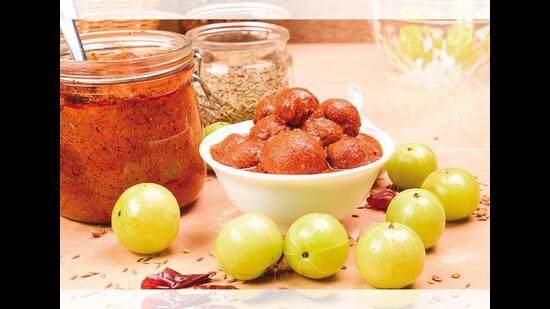
Well, I look for the little sachet of pickle that is usually lurking somewhere on the tray. Once you have added the pickle to the rice and then mixed in the dal and the sabzi (don’t worry about mixing up their flavours; there isn’t any flavour to begin with), you suddenly have a more-on-less acceptable meal which will sustain you through the flight.
Pickle is the Indian miracle additive. It makes everything tasty. It gives food a tang that it never had before. And it saves us from having to eat bland, flavourless meals. It is the magic condiment.
As far as I know, our kind of pickle is a purely South Asian affair. They have pickles in the West but they are completely different. I discovered this the hard way when, as a child, I would see pickles on menus at restaurants in the West and get excited. But when the order arrived, the ‘pickle’ was usually a gherkin that had been long drowned in vinegar or a few slices of sour cucumber. Even pickled eggs and pickled onions which sounded so delicious were duds.
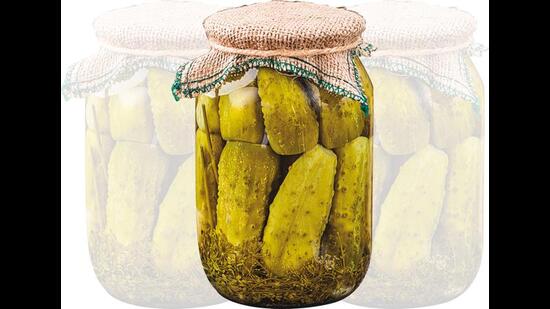
Even when Western pickles look different, they taste bad. The British Branston pickle, eaten with pies and at picnics, tastes like jam that’s gone off. And a cheese and pickle sandwich is merely a slice of processed cheese with pieces of some super-khatta preserved vegetable.
The confusion is mainly linguistic. The British started calling our achaars ‘pickles’. This led us to believe that they were related to Western pickles which, of course, they are not. In the West, pickling is a way of preserving vegetables or fish in a sour or salty liquid (brine, vinegar etc. )
Western food historians will tell you that this method of preservation evolved as a means of allowing people to eat foods long after the season was over. In places where winter can be harsh, pickling is especially popular. The Scandinavians pickle fish. The Russians pickle wild mushrooms. And so on.
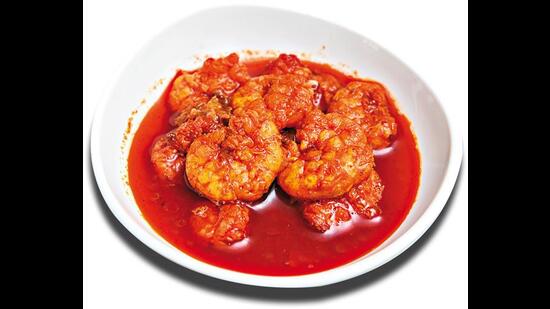
This is all very worthy. But it has damn-all to do with Indian achaar or why we pickle things. Nobody makes a nimbu achaar because they are worried that lemons will go out of season. Even when pickles are made with seasonal fruit, the idea is not to preserve the original taste of the fruit. If you like the taste of fresh mangoes, you may or may not like the flavour of mango achaar—the tastes are very different.
Indians love pickles not because we want to preserve anything— but for the best reason of them all: because they taste good.
I always believed that my attachment to pickles (we have around a dozen varieties at home at any given time) came from my childhood when I would watch my grandmother make pickles. She was, as we say in Gujarat, a shethani, so she didn’t have much to do with the kitchen which was left to skilled maharajs. But when it came to pickles, she took full charge. Assisted by many helpers, she would supervise the process from start to finish.
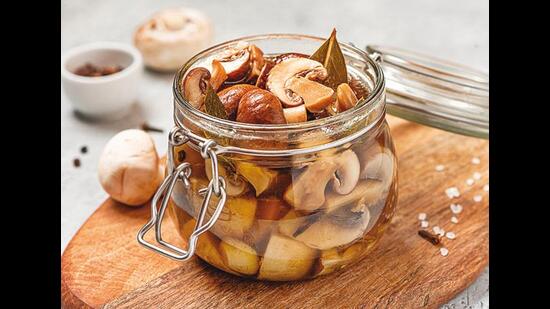
I believed that Gujaratis had a special fondness for pickles. It was normal, at breakfast time, to add a little pickle into a bowl of dahi and to mix them together to create a dip. This became an accompaniment to the breakfast staples: thepla, khaari poori, and even to the aloo parathas Gujarati cooks were struggling to master.
It was only when I grew older that I realised that all of India is as pickle-crazy as we Gujaratis are. I grew to love pickles from all over India. I was first a little freaked out by Punjab Gobi pickle with bits of saunf. But I love it now. Marwari onion pickle (hard to find these days) became a particular favourite. Each time I went South I would buy bottles of Andhra pickles from Amaravathi. If I was driving to Shimla, I would stop and buy bottles of mushroom pickle at the shops that dot the road. The Nepali anda achaar at a close friend’s home was always the first thing I gobbled up at dinner.
The problem with pickles is that fewer and fewer people make them at home any longer. And most of the big pickle companies don’t offer great variety or high quality. But during the pandemic, I made an interesting discovery. The internet has revolutionised the pickle sector. Hundreds of home cooks are now supplying pickles through courier services. You can find them on Instagram or Facebook. Their prices are reasonable, the ranges are massive and quality is superlative.
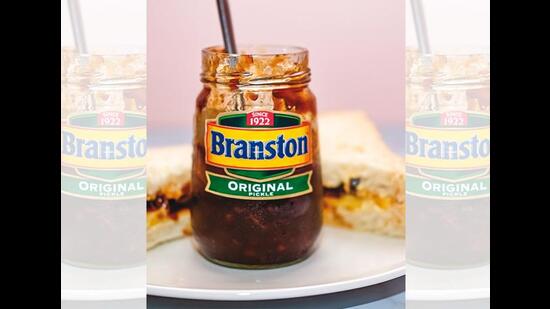
Some are also venturing into more difficult territory. During the pandemic, the late Gaurav Pramanik sent me the wonderful non-vegetarian pickles he bottled in the East: spicy buff; soya bean and shrimps, crispy shredded chicken and more. I got a full range of Parsi pickles from Zarin’s Secrets. Manan Chawla sent me Punjabi meat achaar in mustard oil. Preeti Chadha sent me a keema-chilli pickle she had devised herself. Both Crescentia Fernandes and Lavina Solomon sent me Prawn Balchao. I had fabulous pickles from Pickle Shickle , a small family-run operation in Delhi. They sent me the most amazing prawn and pork pickles along with a (not strictly Indian) Burmese Chilli Onion Garlic Oil.
By the end of the pandemic, I felt like Saleem Sinai, who, in Midnight’s Children, ends up in a pickle factory. I ate pickles at all times and my fridge filled up with jars of pickles.
In other words: I was in heaven!
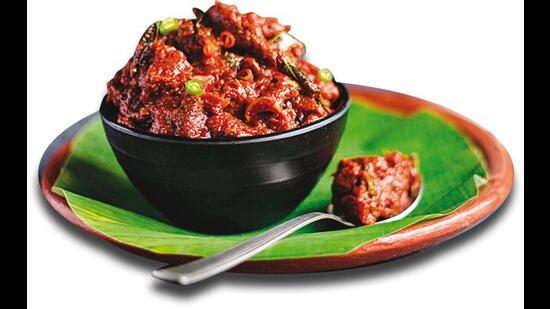
And so, pickles have changed my life. Even when I cook, I now try and include a little pickle oil (if not the pickle itself). For instance, I made a Goan-influenced keema mattar last week and then, shook the dish up with a little green chilli pickle in the finishing. It’s a legitimate thing to do: great chefs put pickles into dishes like Achaari Ghosht and Martaban Ka Meat. If you can use the pickle to add zing once the dish is cooked, why wait till then?
I have some regrets though. One of them is that I can’t carry my own pickles onto aeroplanes. (Security always creates hassles). The other is that I can’t take them to the many mediocre restaurants I often end up at. (Insult to the chef).
Because if it was up to me, I would pickle my way through life, floating in a sea of masala-infused achaari oil!
The views expressed by the columnist are personal
From HT Brunch, March 27, 2022



